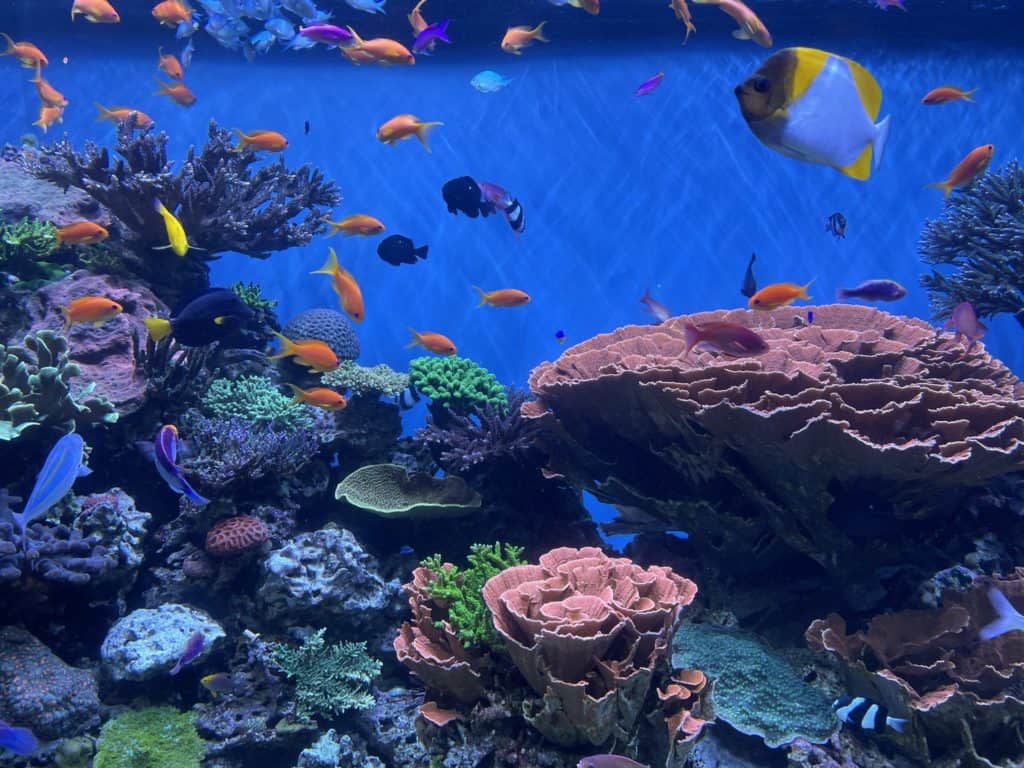**Post contains affiliate links.**
Your fish tank is its own, unique, dynamic ecosystem. Your fish make up only a small part of its biological profile. Microscopic bacteria thrive in fish tanks and supply plenty of food for small invertebrates, including commensal worms. Worms in fish tanks are nothing to worry about and usually only mean it’s time to clean your tank!
Why are there worms in my fish tank?
Fish systems are a host to many different life forms, from bacteria all the way to vertebrates (your fish). In the middle of these stages are a wide array of invertebrates. Snails and worms are very common commensal species in fish tanks and often ride into systems on plants and other live materials. Worms may vary in color from white, to clear, to tan, to red, to black or brown. There are dozens of different worms species that may become incorporated into your fish system that will not harm your fish in any way. They are a natural part of aquatic life.
Worms can appear in your substrate, filter media, socks or other porous substances in your aquarium. They do NOT affect your fish, although they may be a snack for some of your fish and other invertebrates. Anchor worms are the most common type of parasitic worm on fish, but they are not free roaming. Parasitic anchor worms spend their macroscopic lives on your fish. The “worm” part of these parasites are actually only the female reproductive structure.
Hazardous Worms in Fish Tanks
There is only one type of worm in fish tanks that can be hazardous to other invertebrates and humans trying to clean fish systems. There are many species of these worms, commonly called “bristleworms” or “fireworms.” These worms have toxic bristles along their bodies that can sting errant invertebrates, including soft corals and anemones, foraging fish or helpful human cleaners. They are almost exclusive to marine tanks and often enter systems through infected live rock.
These worms can be hazardous to your system and removal is recommended. Large individuals can be plucked out using tweezers or use a bristleworm trap. Cutting down on detritus for their food source can also significantly decrease their numbers in your tank.
How to Get Rid of Worms in Fish Tanks
The most common cause of a worm outbreak is too much food! These worms thrive on small to microscopic debris roaming around your tank. Neglecting your regular maintenance is the most common cause of worms in your substrate and filters. Removing food scraps and feces will cut off the worms’ food source and drastically cut back on their levels in your tank. Learn how to properly clean your fish tank here.
Overfeeding your fish, especially quickly degrading flake food, is another common precursor to a worm outbreak. Be sure you are feeding your fish an appropriate amount of food, and switch them to a pelleted diet if possible. Many tiny pelleted diets are commercially available that are perfect for small fish.
Be sure to clean your filter media regularly and remove large worms. Although they do not affect your fish, they can clog your filter media, impacting your tank’s nitrogen cycle and its efficiency in your tank.
Worms are very commonly misidentified as a parasitic organism. Internal parasitic worms are insanely rare in the pet fish industry and usually only occur in wild-caught species. If you are concerned about a possible parasite infestation in your tank or pond, please contact your local aquatic veterinarian and take care of the issue before it overwhelms your system. If you are located in California or Nevada, please call our office directly at (831) 278-1081.


Hello DR Sanders, my name is Caine Jones, and my pet fish are infested with worms, it is killed probably 80% of my fish which if I had to put a number on them I have well over 200, I’ve tried several medications that I got from Amazon that were supposed to kill parasitic worms in fish but to no avail I’m still dealing with them and the few fish that I would like to keep alive can you help me with this still have I would like to keep alive
If you are concerned about your fish, please call (831) 278-1081 for veterinary assistance. If you are outside California and Nevada, please visit https://fishvets.org or https://wavma.org